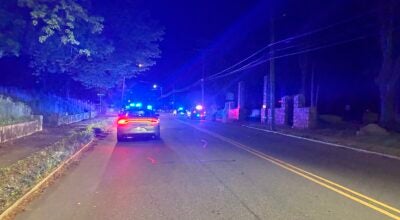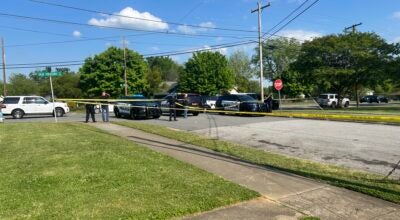Judge: Rowan commissioners’ prayer practice unconstitutional
Published 3:24 pm Monday, May 4, 2015
A U.S. District Court judge has ruled the Rowan County Board of Commissioners’ prayer practices unconstitutional and ordered the board to permanently cease the prayers.
In a ruling filed today in Middle District of North Carolina, Judge James A. Beaty said the board’s practice of having commissioners lead prayer at meetings creates a “coercive setting” and violates the Establishment Clause of the Constitution.
The American Civil Liberties Union filed a lawsuit in 2013 challenging the Rowan board’s prayer practices on behalf of Rowan County residents Nan Lund, Robert Voelker, and Liesa Montag-Siegel.
Beaty agreed with the plaintiffs that the commissioners’ overwhelmingly Christian prayers and request that the public join them in prayer advanced one.
“I’m very glad that the court agrees that Rowan County and other local governments should work to be welcoming to residents of all beliefs, and not simply those who share the majority view,” Nan Lund, the lead plaintiff in the case said in a news release from the ACLU. “Rowan County is home to people of many different beliefs, and I think our officials should embrace that diversity and make public meetings as inclusive as possible.”
Rowan commissioners had garnered hope from a U.S. Supreme Court ruling in a lawsuit against the town of Greece in New York. However, Greece officials did not deliver the prayers. They invited local clergy and lay members of various faiths to pray at their meetings.
In his ruling on Rowan’s commissioners, Beaty wrote that “because of the prayer practice’s exclusive nature, that is, being delivered solely by the Commissioners, the prayer practice cannot be said to be nondiscriminatory. The need for the prayer policy to be nondiscriminatory was one of the characteristics key to the constitutionality of the Town of Greece’s practice.
“… While an all-comers policy is not necessarily required, a nondiscriminatory one is. When all faiths but those of the five elected Commissioners are excluded, the policy inherently discriminates and disfavors religious minorities. That some day a believer in a minority faith could be elected does not remedy that until then, minority faiths have no means of being recognized.”
Beaty went on to write in his decision that the practice in Rowan differed from legislative prayer historically given to solemnize government proceedings and that here, “The Commissioners are the solely eligible prayer-givers and provide prayers according to their personal faiths …The prayers are thus effectively being delivered by the government itself.”
Daniel Mach, director of the ACLU Program on Freedom of Religion and Belief, said in a news release the organization is “pleased the district court recognized that, even after the Supreme Court’s recent decision, there are real constitutional limits on government-sponsored prayer.”
Beaty ruled that Rowan County must pay the plaintiffs $1 in damages as they requested in their initial complaint and that the plaintiffs can pursue attorney’s fees and costs from the county.
County commissioners Chairman Greg Edds and county attorney Jay Dees said before a 3 p.m. board meeting today that they didn’t know enough about the ruling yet to comment on it.
Edds started today’s meeting with prayer. He did not mention Jesus, but said “father” twice.




